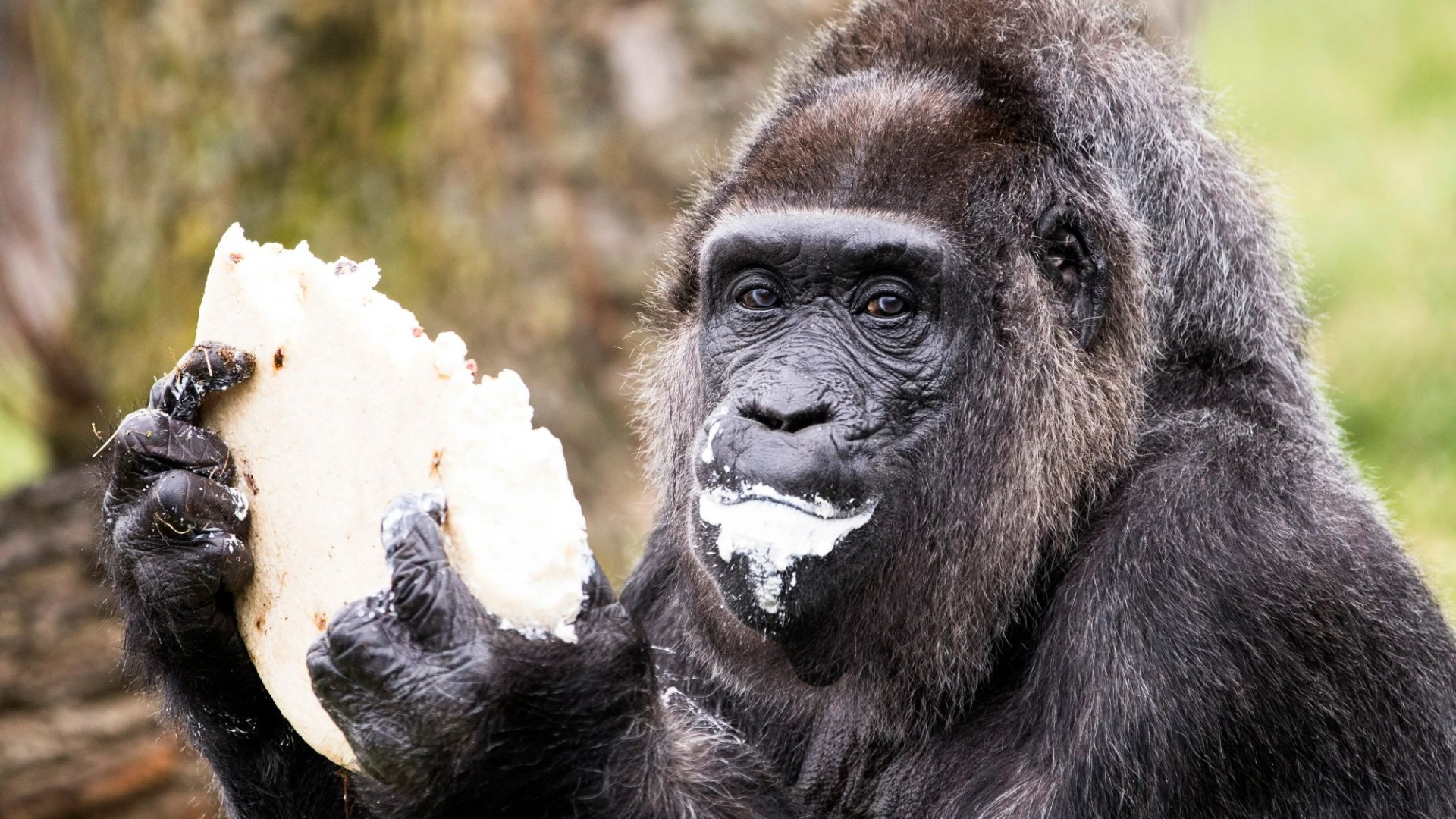SIXTY years ago the world’s oldest gorilla was brought to Europe by a cheeky sailor to help pay off his bar tab.
Fatou celebrated her 67th birthday back in April as zoo staff gave her a birthday cake to snack on despite the elderly primate having no teeth.
7

7

7

7
The western lowland gorilla was first found by a sailor in Western Africa back in 1959 when Fatou was only two years old.
According to a remarkable tale, Fatou was later handed over to a barman in Marseilles, France after the drunk sailor ran out of cash and needed to pay for the night of boozing.
Fatou was then given to French animal trader Madame Lefevre just week later before being sold to a zoo.
Berlin Zoo became her new home and she has lived inside a glamorous enclosure for the past 64 years.
read more in world’s oldest
Even becoming one of the main attractions for visitors across the globe due to her impressive age.
In 2019, Fatou was named the “oldest living gorilla in captivity” by Guinness World Records after fellow gorilla Trudy died when she was 63.
Fatou’s exact date of birth is still unknown with zoo officials saying she could actually be older than 67.
Most predictions do say she was first brought to Berlin as a two-year-old.
In the wild the average female gorilla lives to between 40 and 50 – marking Fatou as a truly remarkable animal.
But with her old age also comes some health issues with Fatou losing her teeth in recent years.
Fatou’s favourite things to do include foraging around in her enclosure as well as climbing.
She lives by herself in an enclosure which is specially made with a number of climbing ropes.
Despite living alone, Fatou still gets to meet with the other gorillas in the Berlin Zoo.
Large silverback Sango, 19, and females Mpenzi, 38, Bibi, 27, Djambala, 22, and Tilla, 3, regularly socialises with the grandmother of the group.
On her 67th birthday, Berlin zookeepers gave Fatou a cake and a special fruit and vegetable basket.
The gorilla scoffed down the cake, which had the numbers 67 sprawled across it in icing, before she licked her fingers clean, zoo staff said.
Zoo and Tierpark Director Dr Andreas Knieriem described her as “a living legend and a part of Zoo Berlin history”.
It comes as the world’s oldest animal still walking the earth has been revealed as Jonathan, the giant tortoise who is 192 years old – at the “absolute” minimum.
The “gentleman tortoise” is thought to have hatched around 1832 at the latest in the Seychelles, since living through the reign of eight British monarchs.
Despite his age Jonathan is showing no signs of slowing down and spends his days taking mudbaths with pals, chomping on bananas and spectating tennis matches.
World’s oldest animals

LET’S take a closer look at some of the world’s oldest living animals.
Saltwater crocodiles: If they survive to adulthood, saltwater crocodiles normally live for more than 70 years. Records show of two especially long-lived crocs suggest they can live to over 120 years.
Seychelles giant tortoise: Tortoises are famed for their longevity. The oldest living land animal is a 190-year-old Seychelles giant tortoise called Jonathan. The tortoise lives on the island of St. Helena in the South Atlantic Ocean after having been brought there by people from the Seychelles in 1882.
Rougheye rockfish: The rougheye rockfish is one of the longest-living fish, with a maximum life span of at least 205 years. These pink or brownish fish live in the Pacific Ocean from California to Japan. They grow up to 38 inches long and eat other animals, such as shrimp and smaller fish.
Greenland shark: Greenland sharks live deep in the Arctic and North Atlantic oceans. They can grow to be 24 feet long and have a diet that includes a variety of other animals, including fish and marine mammals. The Greenland shark can have a maximum life span of at least 272 years.
Hydra invertebrate: Hydra is a group of small invertebrates with soft bodies that slightly resemble jellyfish and have the potential to live forever. These invertebrates are largely made up of stem cells, which continually regenerate through duplication or cloning, so these animals don’t deteriorate as they get older.

7

7

7




